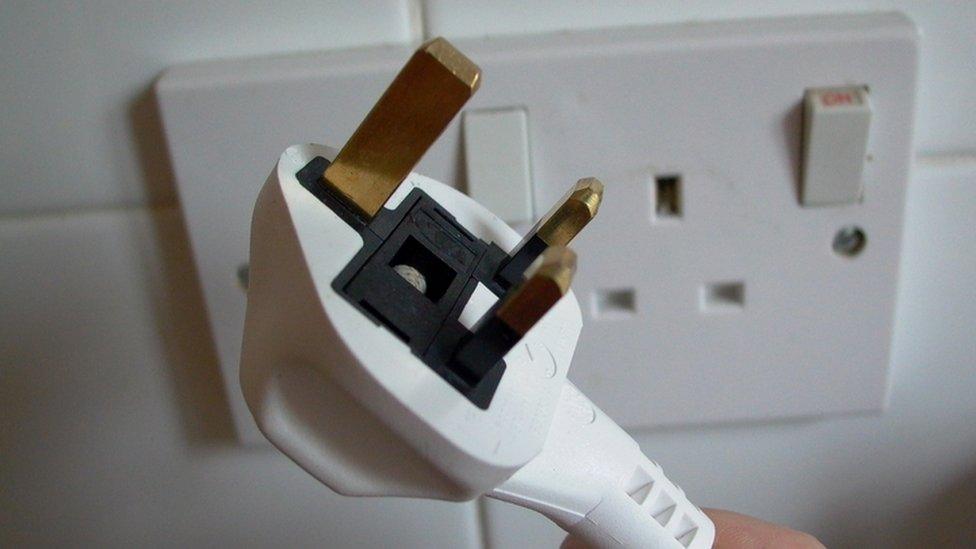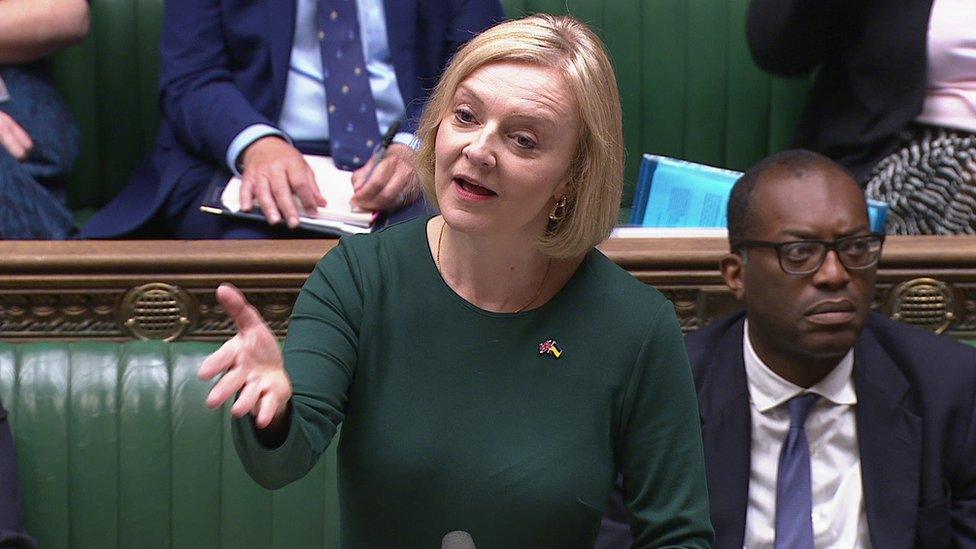Cost of living: NI 'to get same energy bills support as GB'
- Published

The energy market in Northern Ireland is regulated by the Utility Regulator
The government has promised Northern Ireland households will get the same support with energy bills as the rest of the UK.
The business secretary said from October, a typical household in Great Britain will pay no more than £2,500 per year for the next two years.
Northern Ireland has a separate energy system meaning GB policies do not automatically apply.
There were no details on how the support will be delivered in NI.
However, it will require new legislation to be passed.
In a written statement, business secretary Jacob Rees Mogg said: "The new guarantee will apply to households in Great Britain, with the same level of support made available to households in Northern Ireland."
Meanwhile, the prime minister said the energy support would include setting up a fund to help people who use home heating oil.
That will be important for Northern Ireland where about two thirds of homes use heating oil.
The measures for GB will apply from 1 October but it is also not clear when support for Northern Ireland will begin.
The details of an earlier £400 energy support payment have not yet been finalised for Northern Ireland.
GB households will get this via six reductions to bills, also starting in October.
Northern Ireland households do not yet know when or how they will get it, though the economy minister has suggested it will be delivered before Christmas.

The prime minister has announced an energy price cap which will be fixed at £2,500 for households in GB - but it does not apply to NI
Earlier, Finance Minister Conor Murphy said: "We would have ordinarily got money through the Barnett consequential which the executive then would've distributed in a similar scheme.
"But because the prevention of the assembly and executive meeting we can't access that money so it will fall to treasury to make sure we have an equivalent level of support."
'Incomprehensible'
Following the prime minister's speech he said while the support announced today was welcome it did not go far enough.
"Six months does not provide enough certainty for businesses who are facing spiralling and crippling energy costs," he said
Mr Murphy said that it was "incomprehensible" that the prime minister had chosen not to enhance the windfall tax to fund the response to the cost crisis.

Emma Reid is a mother of five who has seen her gas bill rise from £180 to £420 per month.
Speaking to BBC's Good Morning Ulster programme, Ms Reid said she has not used gas for heating over the summer months, and dreads how much higher her bills could rise over the winter.
"We were in such a panic when we saw that (the bill) because we just thought when we submit our next reading, possibly what will that be three months from now?" she said.
"We could be looking at more than what our mortgage is per month and we don't have a disposable income anymore.
"I have only recently heard of the term working poor and now I'm starting to realise we're falling into that category. We shouldn't be struggling the way we are and come the winter months I don't know if it's going to come to a point of eating or heating.
"We've two decent incomes but it's just not going to be enough. The cost of living has risen so much that it's going to be a scary winter."

Retail NI chief executive Glyn Roberts said the six-month cap on energy costs for businesses was a positive first step and welcomed the prime minister's commitment that it would apply to Northern Ireland.
However, he said government needed to go much further to provide additional support to small businesses struggling with the energy crisis.
"This should include Business Rates relief, VAT reductions and the reversal of the National Insurance hike," he said.
Colin Neil, chief executive of Hospitality Ulster, welcomed "the recognition for immediate intervention by the government" but said further support measures were urgently required.
Mr Neil said businesses in Northern Ireland's hospitality sector had been forced to reduce opening hours due to the energy-costs crisis.
Related topics
- Published6 September 2022

- Published6 September 2022
